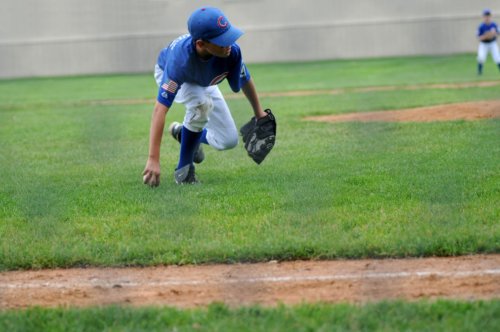
Extracurriculars like sports, music lessons, art classes, or other enrichment activities are a fun way to help your child learn and develop new skills, as well as potentially discover lifelong passions. Unfortunately, they can also be a source of conflict, frustration and hurt feelings. It’s baffling, and sometimes infuriating, when our efforts to guide, praise or cajole our kids through the inevitable challenges of new activities are met with resistance (or even outright refusal and quitting).
I don’t want to practice!
This is boring to me now!
I already know this, so why do I need to rehearse?
What is the deal? Why does a child start out full of excitement over an activity, only to wilt when they have to put a bit of “work” into it?
It’s possible that the activity is not a match for your child. Or there might be an issue with the teacher/coach/another child. Definitely explore these possibilities! But when you know (like, deep in your Mama/Papa Spidey Senses know) that your kiddo truly loves something, yet is suddenly balking, perhaps it’s time to start considering something else: their mindset.
Psychologist Carol Dweck has spent over 40 years researching how students respond to challenges. She has found that, when presented with a task that becomes increasingly difficult, students respond with either a “fixed mindset” or “growth mindset.” A fixed mindset is when you believe that your ability in something is finite, that you are either good (talented) at something or you’re not. Those with a fixed mindset fear failure and are more likely to give up easily if something becomes challenging, or, if an activity comes naturally to them, they have no desire to take risks and stretch themselves. Alternatively, people with a growth mindset believe that they can always improve their abilities by learning from failure and applying different strategies to target areas of, well, growth.

By modeling and encouraging a growth mindset, parents have an enormous opportunity to influence their children’s approach to learning, risk-taking, and response to adversity. This can be challenging at first if, like a lot of us, you didn’t grow up when ideas like “mindset” were bandied about in popular culture, much less applied to child-rearing. If we’ve internalized a fixed mindset toward learning, we could transfer that to our kids without even realizing it.
In 25 years as a piano teacher, I’ve observed many parents stressing quantity/repetition over quality when it comes to practicing. They think they are doing the right thing with their children’s rehearsal time because that’s what they were taught; however, setting a timer or playing each song through X times is not in itself going to help you improve. Likewise, spending two hours shooting free throws, but not changing anything about your technique, can actually have the unwanted effect of reinforcing mistakes and bad habits.
A student with a fixed mindset might keep returning to the beginning each time they make a mistake, trying to play a song “perfectly.” Or, they plow along through the mistakes without attending to them, wondering why all their time and effort isn’t working. They begin to doubt their ability and get discouraged. Well-meaning parents who shower their kids with peppy encouragement like “just have another go,” “keep trying,” or give hollow praise: “that was so good!” (when it clearly wasn’t) often add fuel to the frustration fire—hence, dramatic blow-ups over practicing.

It doesn’t have to be this way, though! Here are several ways you can help your kids develop a growth mindset:
- Words have weight. Pay attention to how you speak to your kids about their activities, and when/how you praise them. Are you only praising end results (a game win, a “perfected” piece of music, a completed puzzle) or do you note areas of growth? If you notice improvement in something specific they have been working on, (like keeping a steady beat) or if you see them using a strategy their coach suggested (following-through when shooting), praise the heck out of that!
- Help them work with feedback. Even if your child’s activity isn’t your personal forte, their teacher or coach is going to highlight things to focus on each week, and probably include some suggestions of how to practice them. If they don’t, ask them to. Go over this with your child to make sure they understand where to direct their effort. Encourage them to reflect on aspects they feel good about and things they want to work on.
- LeBron James and Taylor Swift still have to practice. Stress that even people who excel in or are “gifted” at an activity need to practice. Build practice time into the household routine so that it becomes a habit.
- Failure is not a bad thing (when you learn from it!). Explain that just because they are experiencing difficulties doesn’t mean they are “bad” at something. Every learner has challenges at some point. This is how you know you are learning! Help your child see “failures” as opportunities to develop their knowledge, skills, and strategies. A wealth of fabulous children’s books are available to back you up.
A growth mindset will help your children become resilient, adaptable, life-long learners who thrive on challenges—key qualities of successful adults. And hopefully, practice time can be a little more joyful and a lot less tearful for everyone!


Grok Nation Comment Policy
We welcome thoughtful, grokky comments—keep your negativity and spam to yourself. Please read our Comment Policy before commenting.